Are you considering an early termination of your contract but unsure how to approach it? Writing a clear and professional letter is key to ensuring a smooth process. In this article, we'll guide you through the essential elements of an effective termination letter, helping you communicate your intentions while protecting your interests. Ready to navigate this situation confidently? Let's dive in!

Contract Details
Early termination of a contract often involves specific details that need to be addressed clearly. The contract, identified by a unique reference or contract number, outlines the obligations of both parties involved. Factors such as the start date of the contract, typically indicating the time frame of engagement, and the expected end date also play a crucial role. Terms around notice periods, often set at 30 or 60 days, provide guidelines on how early termination should be communicated. Additionally, any penalties or fees incurred upon early cancellation can significantly impact the financial aspects for either party. It is essential to reference the specific clauses within the contract that allow for early termination, which could include grounds such as breach of terms or mutual agreement. Communication should be documented, commonly through formal letters, ensuring transparency and clarity during the termination process.
Termination Clause References
The early termination of a contract may occur under specific conditions outlined in the termination clause, which typically specifies the procedures for ending the agreement before its scheduled conclusion. Common grounds for early termination include breaches of contract, mutual agreement, or changes in circumstances such as business insolvency. The termination clause may also stipulate notice requirements, often ranging from 30 to 90 days, and any potential penalties or fees associated with the early exit. Legal frameworks governing contracts can vary significantly by jurisdiction, making it essential to refer to local laws for compliance. Additionally, both parties should document their communication regarding the termination to avoid disputes or misunderstandings in future interactions.
Reason for Termination
Early termination of a rental contract can arise from various circumstances, such as job relocation, financial hardship, or the landlord's failure to maintain the property in compliance with health and safety regulations. For example, if a tenant receives a job offer in a different state, the need to relocate within 30 days may render the current living arrangement impractical. In another instance, financial difficulties, such as a job loss, can make ongoing rental payments unmanageable, prompting a tenant to seek early termination options. Additionally, issues with property condition, including persistent plumbing problems, mold growth, or lack of adequate heating, may compel tenants to terminate their lease early, particularly when the landlord neglects necessary repairs despite formal requests. Each of these scenarios necessitates clear communication and documentation to ensure a smooth transition out of the contract.
Effective Termination Date
Early termination of a contract, such as a lease or service agreement, requires careful consideration of the effective termination date. An effective termination date refers to the specific date on which the contractual obligations cease. This date can vary based on the terms outlined in the original contract, often requiring a notice period, which may be 30 days or another specified duration. Each party must adhere to the stipulations regarding penalties or fees for early termination, typically detailed within the contract's language. Clear communication, including informing the other party via written notice, is essential to ensure mutual understanding and legal compliance.
Request for Confirmation
Early contract termination can arise in various situations, including unforeseen circumstances such as job loss or relocation. Clients seeking to end contracts like rental agreements or service contracts often send formal notices. Key elements include clear identification of the contract, notice period, and reasons for termination to avoid potential disputes. Relevant laws, such as the Fair Trading Act, should be referenced to ensure compliance. A professional tone is essential, maintaining cordial relations despite the contract termination. Addressing the letter to the correct contact, typically the managing director or property manager, ensures prompt handling of the request.

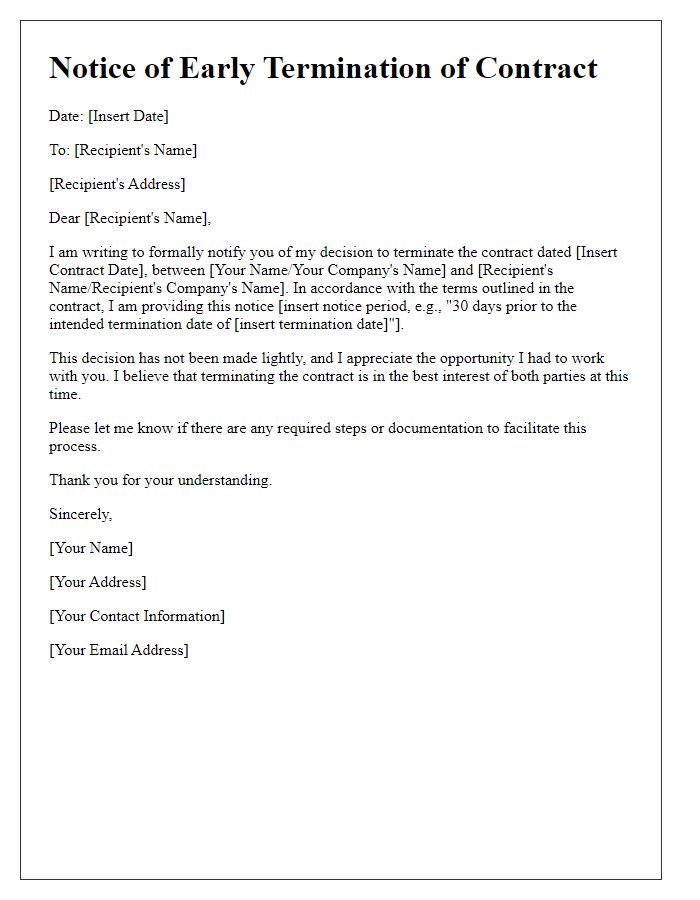
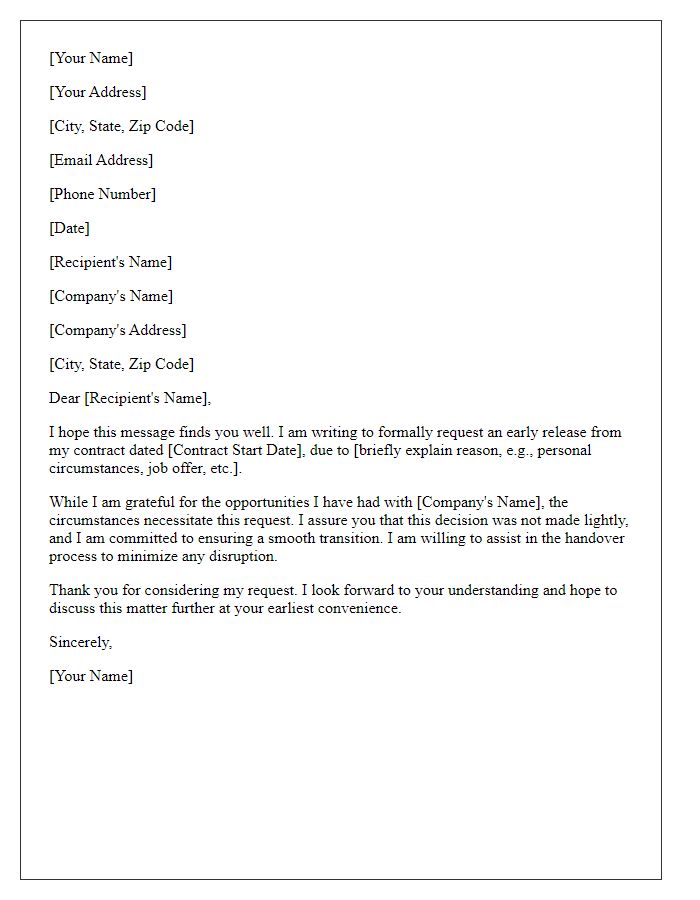
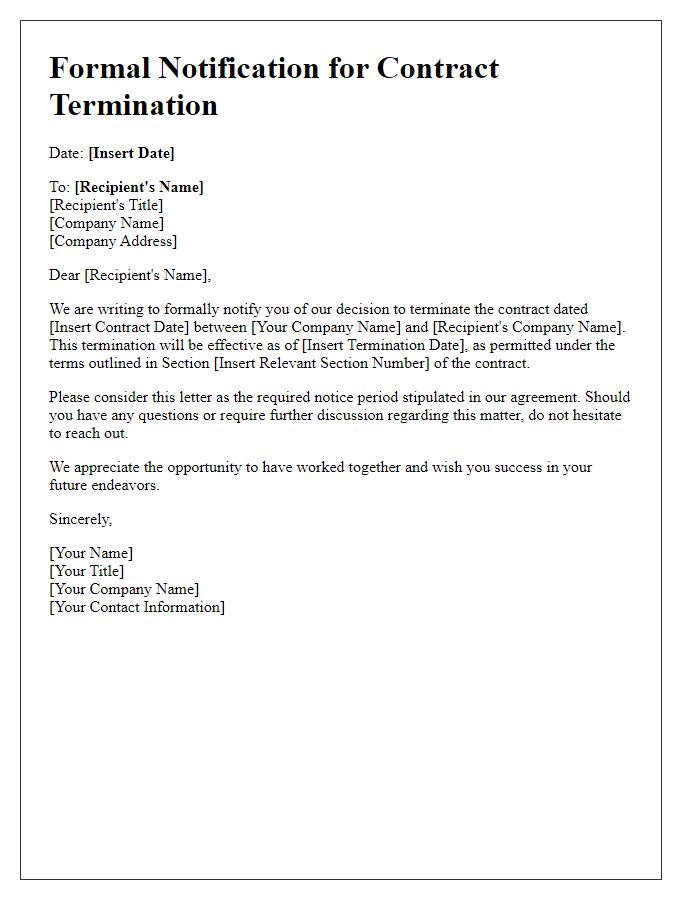
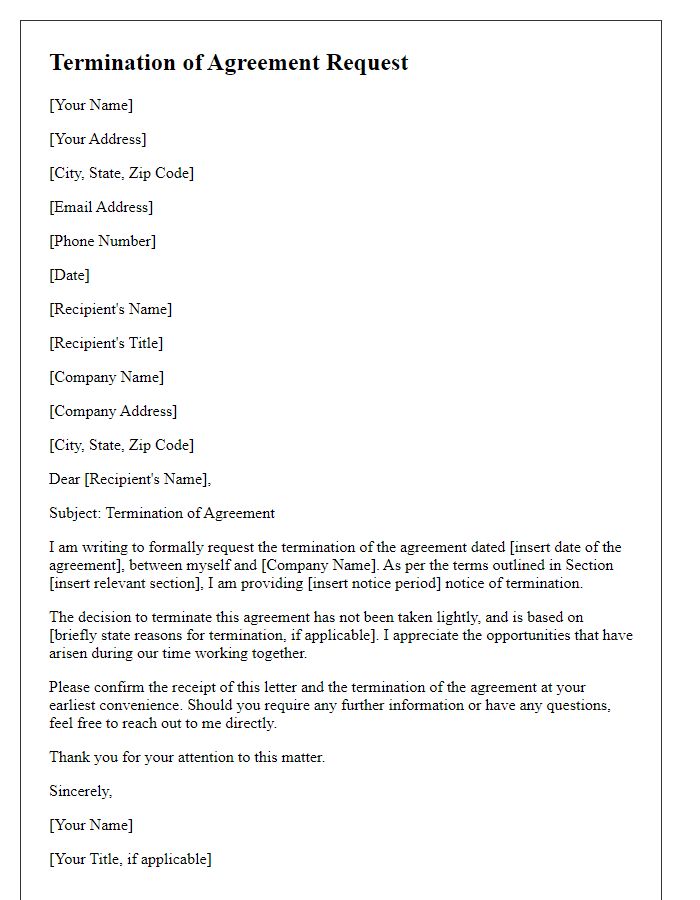
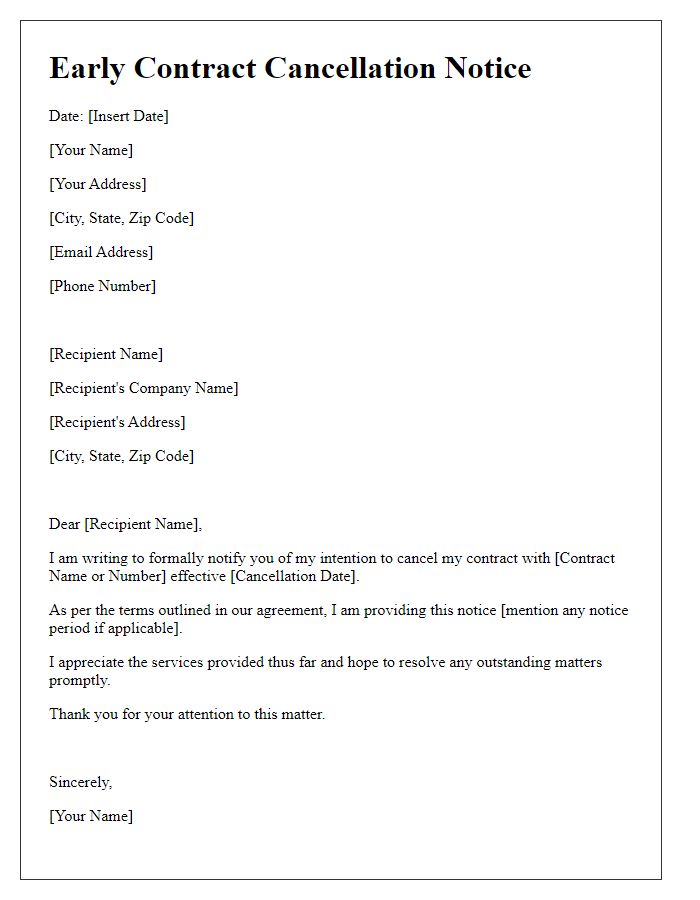
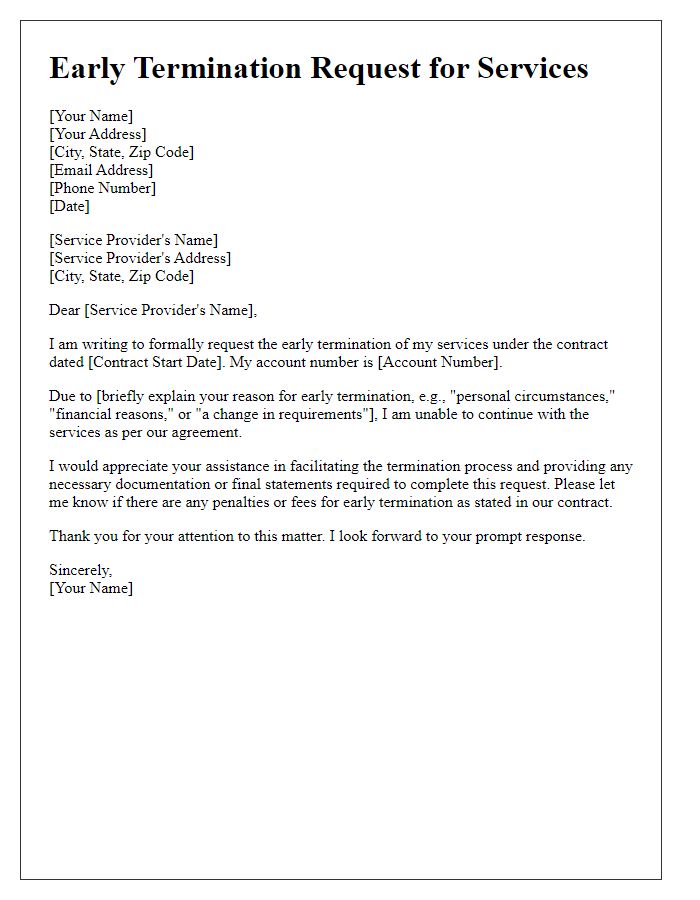
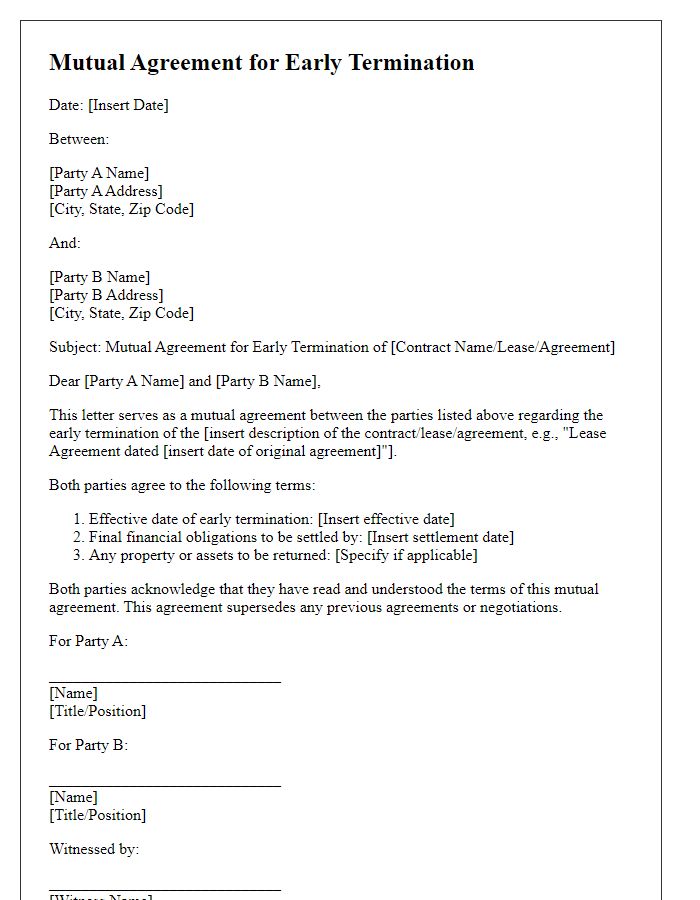
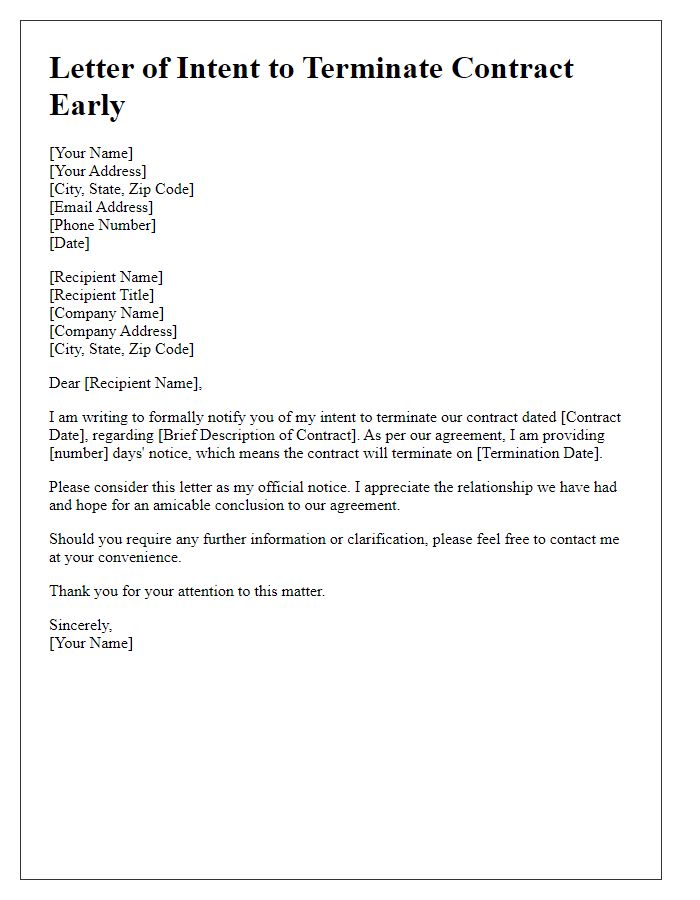
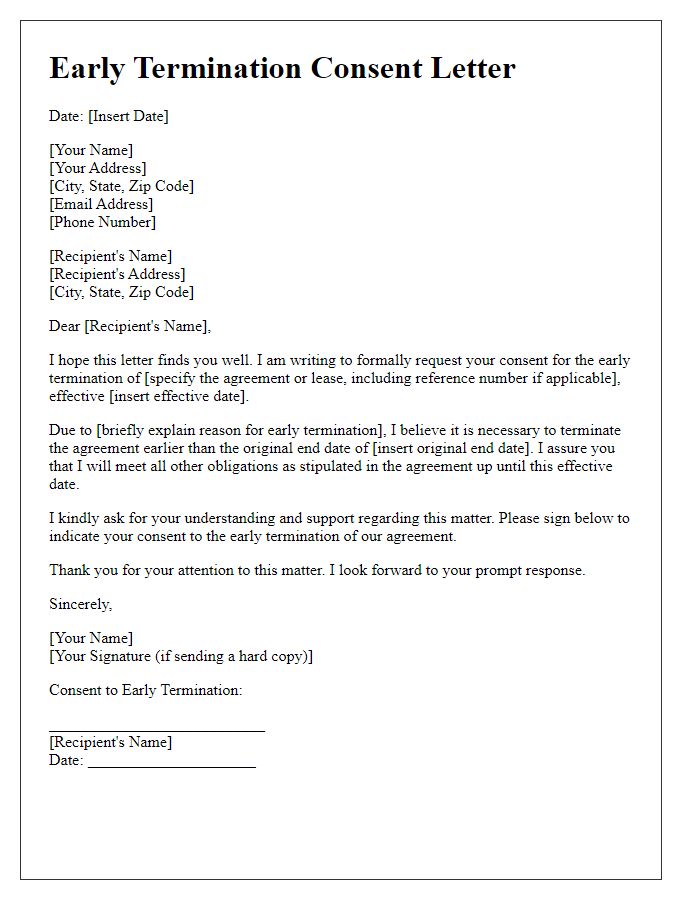
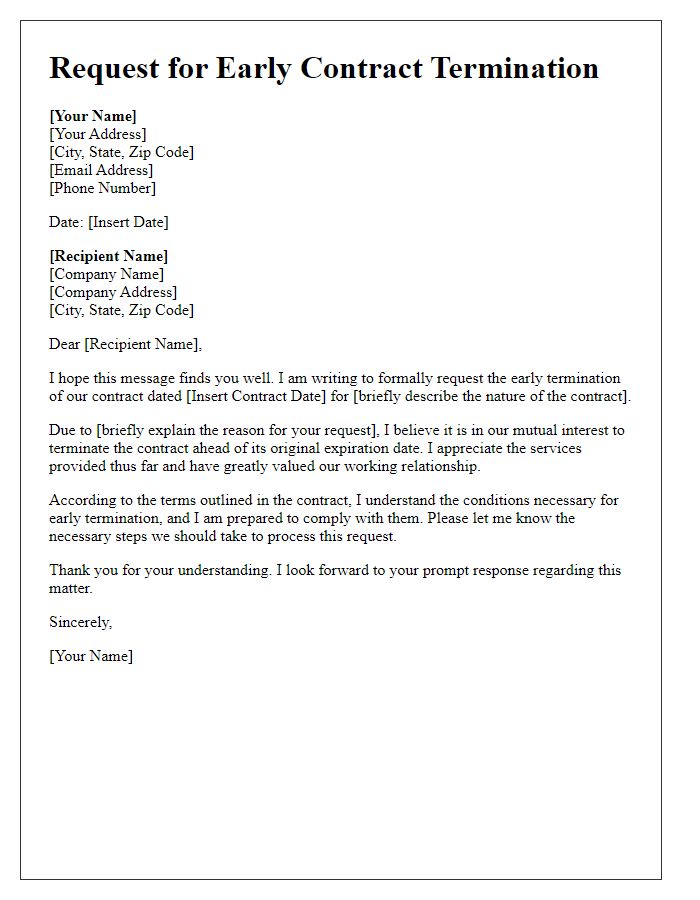


Comments